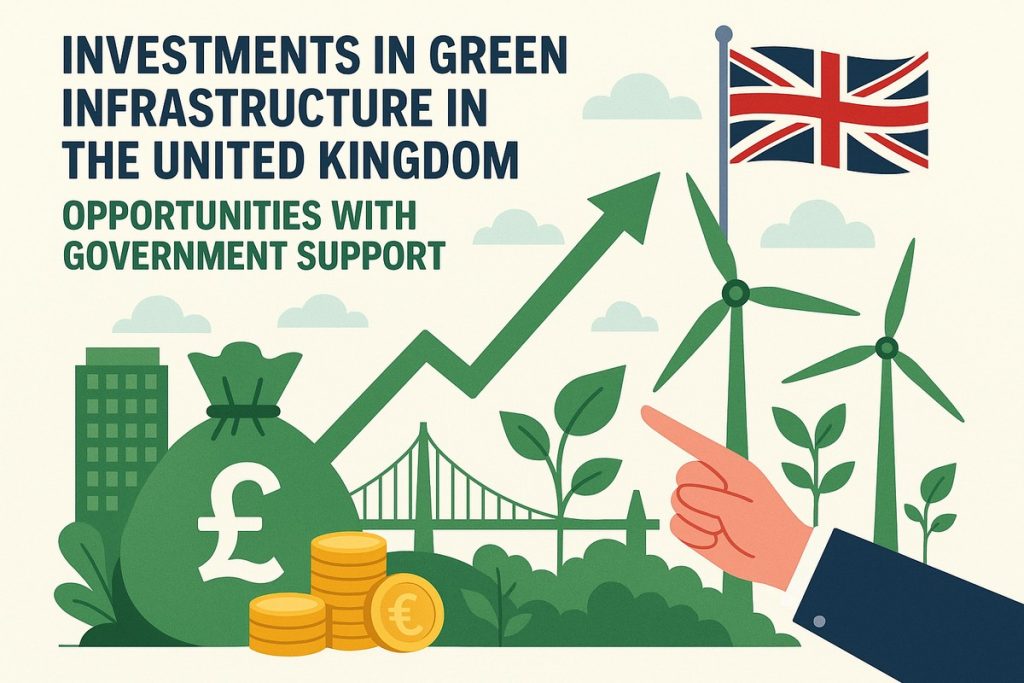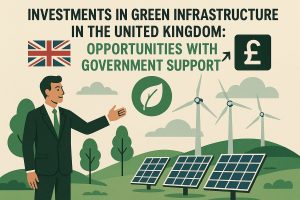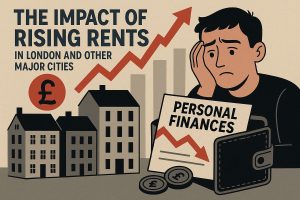Investments in sustainable infrastructure have become a cornerstone of the United Kingdom’s economic recovery and environmental strategy. With climate change accelerating and urban populations growing, the need for smarter, greener solutions is undeniable.
The UK government has been actively promoting initiatives that attract both public and private investments into renewable energy, eco-friendly transportation, and resilient urban planning. These actions not only protect the environment but also generate jobs, stimulate innovation, and build long-term economic resilience for future generations.
The rise of sustainable infrastructure in the UK

Over the past decade, the UK has positioned itself as a leader in sustainability by integrating green priorities into national policy. Programs like the Green Finance Strategy and the UK Infrastructure Bank have provided incentives for private investments in projects such as offshore wind farms, electric vehicle networks, and low-carbon housing developments.
These initiatives aim to balance environmental responsibility with economic growth, proving that sustainability and profitability can coexist in meaningful and measurable ways. For investors, this combination represents an opportunity to participate in a market that rewards long-term vision, ethical engagement, and commitment to innovation.
How public policies attract private investors
Governmental support plays a crucial role in driving investments toward cleaner technologies. Through tax incentives, loan guarantees, and funding partnerships, the UK reduces the financial risks traditionally associated with large-scale infrastructure projects.
For example, the Contracts for Difference (CfD) scheme ensures stable revenue for renewable energy producers, encouraging consistent private participation. Additionally, local councils and devolved governments are now creating their own frameworks to support eco-projects, from reforestation initiatives to sustainable waste management. This collaboration between sectors strengthens investor confidence and accelerates the transition toward a low-carbon economy.
Key areas for green investment
Among the most promising fields for investments, renewable energy stands out as a major focus. Offshore wind power, already one of the UK’s great success stories, continues to expand with record-breaking capacity additions each year. Solar energy, hydrogen production, and smart grids also attract considerable funding due to their scalability and government backing.
Beyond energy, sustainable transport and water infrastructure projects are gaining momentum, supported by policies that prioritize resilience, innovation, and efficiency. From expanding electric vehicle charging networks to improving water management systems, these initiatives reflect the UK’s commitment to sustainable growth. These sectors offer diverse opportunities for both institutional investors and smaller players seeking stable, impactful ventures that contribute to a greener and more resilient economy.
Urban regeneration and innovation
Cities are at the heart of the UK’s green transformation. Urban regeneration projects, supported by public investments, are turning neglected areas into hubs of innovation, biodiversity, and social well-being. Initiatives that incorporate green roofs, sustainable drainage systems, and pedestrian-friendly spaces not only reduce pollution but also enhance quality of life.
Technology-driven solutions—such as AI-based energy management and sustainable construction materials—are reshaping how infrastructure is designed and maintained. These innovations improve efficiency and reduce environmental impact. The growing alignment between environmental goals and technological advancement makes the UK a prime destination for progressive investors worldwide who value both profitability and sustainability.
The economic and social impact of green initiatives
Strategic investments in sustainable infrastructure do more than reduce carbon emissions—they strengthen communities and promote inclusive growth. Green projects create thousands of jobs, from engineers and architects to local workers in maintenance and logistics.
They also stimulate regional economies by attracting new businesses and encouraging innovation clusters. Socially, these projects enhance accessibility, health, and public well-being by improving air quality and reducing energy poverty. The UK’s approach demonstrates that investing in green infrastructure is not only good for the planet but also essential for long-term economic security.





